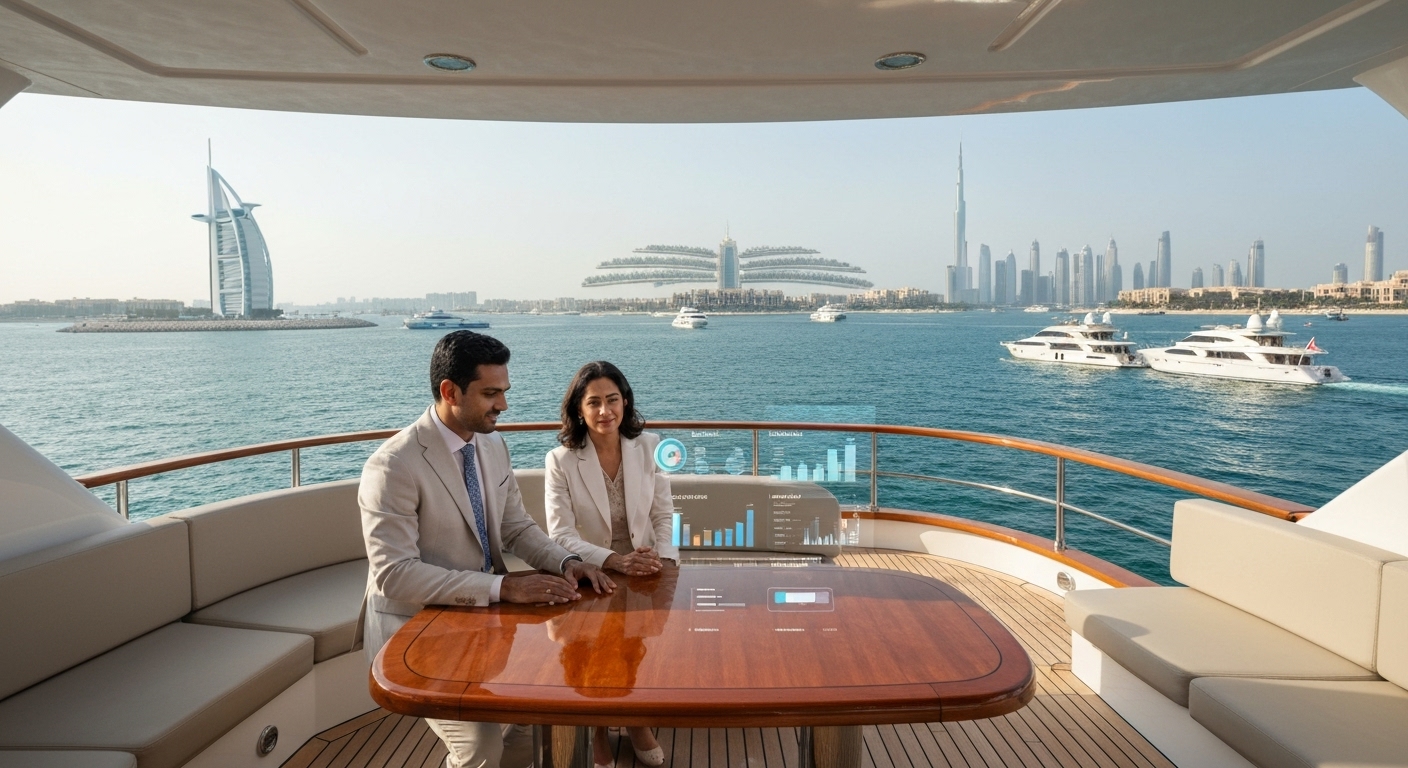Prime real estate in global metropolises has long been the asset class of choice for High-Net-Worth Individuals (HNWIs) and Non-Resident Indian (NRI) investors. As the search for superior Return on Investment (ROI) intensifies, Dubai and Mumbai stand out as two compelling, yet distinctly different, markets. This article presents a granular, data-backed analysis of both cities, focusing on ROI, key cost drivers, and strategic considerations—embodying discerning investors to make informed, profitable decisions.
Understanding the High-Net-Worth Investor’s Perspective: Dubai vs. Mumbai
HNWIs and NRIs typically seek more than just capital appreciation; they demand transparency, global connectivity, regulatory protection, and exceptional lifestyle amenities. For many, key priorities include:
– Robust rental yields and long-term growth prospects
– Seamless acquisition and repatriation processes
– Protection of capital through clear legal frameworks
– Prestige and lifestyle value that enhances their investment
Dubai and Mumbai both promise prestige and strong fundamentals, but diverge sharply in how they deliver on these priorities.
Real Estate Market Overview: Dubai’s Allure vs. Mumbai’s Dynamics
Dubai: International Magnet for Wealth
Dubai’s property market has rapidly evolved into a global investment hub. With a future-focused government, open economic policies, and a cosmopolitan lifestyle, Dubai continues to attract global capital. Key highlights include:
– Prime Localities: Downtown Dubai, Dubai Marina, Palm Jumeirah, and Jumeirah Village Circle, hosting luxury apartments, waterfront villas, and branded residences.
– Investor Base: A truly international mix, with strong representation from Indian, Russian, European, and Chinese HNWIs.
And for those considering the advantages of different investment paths, the Dubai market also presents opportunities in off-plan development. See off-plan opportunities here: off-plan apartments in Dubai.
Mumbai: India’s Commercial Powerhouse
Mumbai remains India’s undisputed financial capital, a city with chronic housing demand and restricted land supply. Its appeal lies in:
– Prime Districts: South Mumbai (Malabar Hill, Walkeshwar), Bandra, Worli, and Powai, which host luxury towers and exclusive penthouse developments.
– Investor Demographic: Predominantly Indian HNWIs and NRIs, with a growing segment of international funds.
Deep Dive into ROI: Rental Yields, Capital Appreciation, and Tax Regimes
Rental Yields
– Dubai: According to Emaar Properties, Dubai consistently offers high rental yields, typically ranging from 6% to as much as 12% depending on location, amenities, and property type. Emaar Properties Waterfront residences and branded developments show some of the strongest performance.
– Mumbai: As cited by Emaar Properties, rental yields are more conservative, often between 2% to 3.5% for luxury apartments in elite areas—largely due to high acquisition costs and regulated rental frameworks.
Enhancing the Dubai ROI narrative, Dubai Marina stands out as a marquee example of waterfront, amenity-rich living that couples lifestyle with strong rental demand.
Capital Appreciation
– Dubai: Sustained demand for premium developments has led to healthy capital appreciation, especially in off-plan projects that are delivered with strong amenities and branded features.
– Mumbai: While long-term appreciation has been solid, especially in land-scarce micro-markets, the pace is often tempered by regulatory bottlenecks and higher transaction costs.
Tax and Regulatory Environment
– Dubai: According to Bloomberg, Dubai is free from capital gains tax and property inheritance taxes for most property types, making it extremely attractive for international investors. A stable currency pegged to the USD further boosts confidence.
– Mumbai: Indian regulations impose taxes on rental income and capital gains, and the transaction process can be more bureaucratic, especially for NRIs.
Cost of Investment: Property Prices, Acquisition Costs, and Maintenance
– Dubai: According to Seven Century Real Estate, prime luxury apartments average between AED 2,000–3,000 per sq. ft., with villas and branded residences often higher. Seven Century Real Estate Acquisition costs are transparent, and maintenance costs are competitive owing to modern infrastructure.
– Mumbai: Comparable luxury apartments routinely fetch INR 60,000–100,000+ per sq. ft. in prime areas, and villas are rare and command significant premiums. Stamp duty, registration, and maintenance fees further add to costs.
For global investors, Dubai’s competitive pricing structure, together with attractive payment plans for off-plan apartments in Dubai, offers significant entry advantages over Mumbai.
Regulatory Environment and Investor Protection in Each Market
– Dubai: The Dubai Real Estate Regulatory Authority (RERA) enforces strict compliance, protecting buyers through escrow accounts and mandatory disclosures. The market’s transparency and regulatory oversight consistently rank among the world’s best.
– Mumbai: Regulatory oversight has improved post-RERA (Real Estate Regulatory Authority of India), but bottlenecks related to approvals and dispute resolution occasionally persist, making Dubai’s framework comparatively more investor-friendly.
Lifestyle, Infrastructure, and Future Growth Prospects: Beyond the Numbers
Dubai
Investors benefit from world-class lifestyle infrastructure: airports, malls, golf courses, and beaches, with a central location bridging East and West. The Golden Visa and Green Visa—offering five- and ten-year residency permits for investors and professionals—are added incentives bolstering property values and expat appeal.
Mumbai
Mumbai offers unparalleled business connectivity in India. However, limitations in infrastructure, traffic congestion, and limited open spaces mark a contrast with Dubai’s planned urban experience.
Strategic Investment Considerations for High-Net-Worth Individuals
– Portfolio Diversification: Dubai offers global currency stability and international rental demand; Mumbai enables a strong India focus for wealth preservation.
– Asset Type Selection: Luxury waterfront apartments and branded villas in Dubai yield the best numbers. In Mumbai, look for redevelopment projects or properties in emerging corridors for long-term appreciation.
– Regulatory Peace of Mind: Dubai’s investor-friendly regime and tax-neutral status provide reassurance, especially for international and NRI clients concerned about repatriation or succession.
Why Partner with Danube Properties for Dubai Investments
Dubai continues to set the benchmark for investor confidence and profitability—offering unmatched ROI, investor protections, and premium lifestyle appeal. Danube Properties, with its award-winning track record and prime off-plan portfolio, stands ready to guide HNWIs and NRIs in capturing Dubai’s opportunities.
Are you ready to access Dubai’s most lucrative and secure real estate opportunities? Contact Danube Properties today for a personalized portfolio consultation tailored to your financial goals.
Disclaimer: This article is for informational purposes only. Please consult with your licensed financial advisor before making investment decisions.




